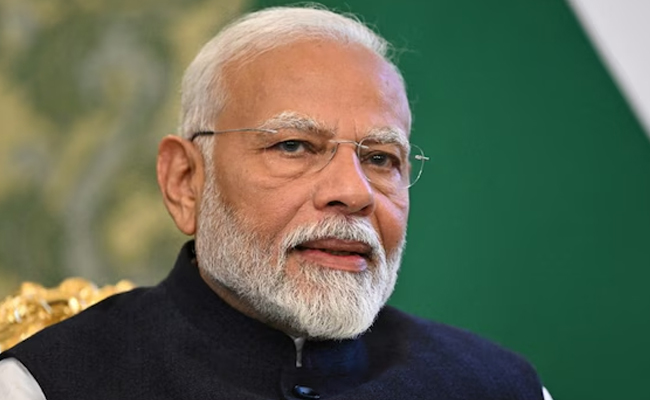
India News

Undoubtedly, Narendra Modi’s image is on the rise. Many across the world who oppose Islamic terrorism believe that India has taken a firm stand against Pakistan-sponsored terrorism. Several prominent American and British leaders have publicly stated that India’s response to terror attacks should not be viewed differently. Russia offered its support when asked, and Israel responded as if waiting for an opportunity to assist.
Leaving aside America’s usual double standards and President Trump’s unpredictable behavior, much of the global community seemed eager to see India take action against Pakistan. Among the countries supporting Pakistan are Turkey, China, and Azerbaijan. However, if India were to plunge into a full-scale war, it would pose a major problem for China itself.
China depends on India as a consumer market. If India moves toward war, it would deliver a heavy blow to China’s economy. A drop in Indian consumption would hurt China’s export markets significantly, especially at a time when it is already under pressure from U.S. tariffs. Thus, China cannot afford to stand firmly with Pakistan in a war. It might offer covert support at best, but it cannot overtly commit itself.
At a time when the world was visibly leaning against Pakistan, and its military weaknesses were becoming evident, an unexpected twist came when India also announced a ceasefire. Pakistan made a similar announcement. However, even after that, India claimed Pakistan continued flying drones across the border. But that’s Pakistan—what else can be expected? Expressing shock over such behavior seems unnecessary.
In this entire episode, Prime Minister Modi’s image skyrocketed initially, but soon after, there was a noticeable silence even among his supporters. Indians broadly supported military action against Pakistan. For decades, public frustration had been simmering over Pakistan’s attitude—not toward its people, but toward its rulers, military aggression, and support for terrorism. India’s actions weren’t about aggression but self-defense. When terrorists cross the border and kill civilians, the nation’s response stems from righteous indignation. Any leader who channels this anger naturally receives public support.
Historically, Indira Gandhi and Atal Bihari Vajpayee earned lasting respect in the eyes of the nation after leading successful military actions. Compared to their times, Pakistan is much weaker today. During Indira Gandhi’s war with Pakistan in 1971, the per capita income of both countries was roughly equal, and their lifestyles were similar. Although democracy in Pakistan was shaky even then, the general standard of living was comparable.
After the Bangladesh war, Pakistan was left with less territory and a reduced tax base. Political instability, military interference, coups by leaders like Musharraf, puppet governments, rampant corruption, declining foreign aid, and devastating floods—all contributed to Pakistan’s collapse. In contrast, India’s economic and social status has improved significantly.
Today, Pakistan appears to be crumbling. The public is nearing revolt against its rulers. If India had taken the opportunity to completely dismantle terror camps, it would have been the most opportune moment. As Pakistan stands on the verge of becoming a failed state, India has a pressing need to eliminate those terror infrastructures.
Why? Because Pakistan may soon fall entirely into the hands of terrorists. While the military currently controls the state, it is already collaborating with extremist groups. It is not unthinkable that tomorrow the military itself could be overtaken. Pakistan could, like Afghanistan under the Taliban, be ruled directly by terrorists. That would pose a grave threat to the region and the world. Regardless of diplomacy, trade relations, or peace talks—terror camps in Pakistan remain an ongoing threat.
In this situation, the general perception was that the Indian government had begun the mission of eliminating those camps, and thus Modi naturally emerged as a hero in the eyes of the average Indian. However, announcing a ceasefire without achieving clear objectives didn’t necessarily diminish Modi’s image—it rather reminded people of Indira Gandhi’s boldness. After India’s ceasefire announcement, social media lit up with speeches and memories from the 1971 war under Indira Gandhi.
That tells us something clearly: the nation expected a certain course of action from Modi. Anything short of that does not satisfy public sentiment, because Pakistan-sponsored terrorism still looms as a threat to India.
Advertisment